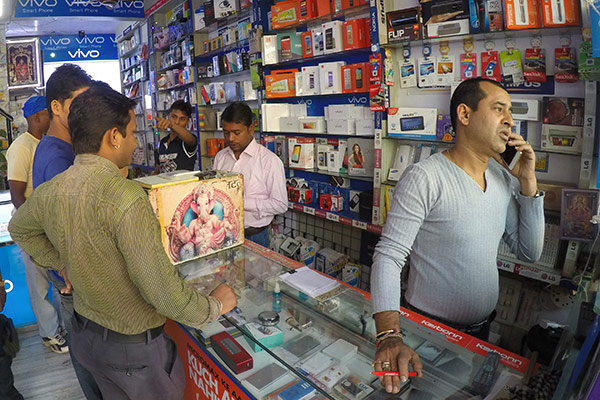
In Kenya, Chinese nationals are setting up businesses in droves because of sweetheart policies in Beijing, including export tax rebates of up to 16 percent; non-compliance of local tax laws; easy access to visas; and failure of the Kenyan government to come up with sound policies to protect the local small-scale market.
Since Kenya began amassing loans from China to build ambitious infrastructure, including the Standard Gauge Railway, the Chinese have become a permanent fixture in the country, running roughshod over many Kenyan businesses, especially in the engineering and construction sectors.

China’s share of Kenya’s bilateral debts stood at $8.78 billion by December 2018, according to latest data filings by National Treasury. This represents 70.71 percent of the total value of bilateral debts that Kenya has accrued. The debt-trap is seen as one reason the government is unwilling to address the influx of Chinese influx onto the local business scene.
Gikomba Market, which opened in 1952, is a major source of income for thousands of Kenyans who import second-hand goods—from clothing to household items and logistic services. According to the Nairobi Importers and Small Traders Association (NISTA), 90 percent of goods sold there comes from China.
About 5,000 small-scale traders have closed shops in the past one year due to the “Chinese invasion,” says the Kenya World Wide Importers and Traders Association (KWITA).

“These are young men who sought alternative sources of income by becoming small-scale traders. Now, most of them cannot afford food or pay for their children’s school fees. A number of them have committed suicide,” said KWITA Chairman Ben Mutahi.
“They are even selling clothes with us. Can you imagine…they are setting their shops next to ours. They are getting bolder day by day, and they are selling cheap,” he adds with a tinge of bitterness.
These Kenyan brokers, those who would normally connect importers and brokers to “friendlier” warehouses, have become increasingly irrelevant as the Chinese have grown less dependent on Kenyans as go-betweens for their businesses.

The Chinese invasion into the local small scale trading needs to rechecked as they have set up kiosks along Luthuli Avenue to sell mobile phone accessories and CCTV cameras, along Sheikh Karume Road to deal in construction hardware and solar products, and in Gikomba Market to sell second-hand clothes, famously known as mitumba.
“Kenyans have always complied to every demand by the Chinese government to get a visa to China in order to engage in business. But the Chinese will come here with a tourist visa, set up a business, and the Kenyan government cannot lift a finger to protect small-scale traders,” says Mr. Mutahi.
John Mwangi a trader at Nyamakima states that the Chinese have turned Kenya into a dumping site and they are selling at a throw-away price.